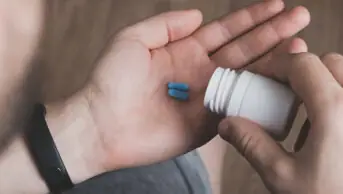
Shutterstock.com
“I just want you guys to know this: you are by far the best chemist that I’ve been to. I know we are addicts and that, but that doesn’t mean we have to be treated like animals, so thanks for being kind with people like us.”
Hearing this as a trainee pharmacist, I thought to myself, what has happened to our profession — which many regard as their go-to healthcare provider — for our patients to expect to be treated as less than human?
At the start of my training year, one group of people who came into the pharmacy, who were really patient with me, and understood my inexperience, were patients with an addiction prescription.
“No worries, me duck. You take your time. You’ll be caring properly for others soon!”
These patients helped me ease into my new workplace, and their willingness to talk to me about their other medicines allowed me to build rapport with them, while improving my consultation skills too.
So, it was harrowing to find out that these patients were being looked down upon and even told to come through the back door to get their methadone supply. As a pharmacy student, I never expected to hear stories like these.
By talking to these patients, I learned that coming to collect their prescriptions gives them some normality in their lives. With many of them homeless and out of work, the pharmacy seems to give them a glimmer of a more stable life.
They are always keen to hear how my studies are coming along, and conversations have given me insight into their lives too. While this group are disengaged from society as a whole, they really value our relationships: “Tell you what, you guys aren’t half brilliant.”
Treating these people with respect is enshrined in the principles set by our regulator, but my story resonates with other preregistration pharmacists I’ve talked to. They have heard pharmacy staff calling the names of addiction patients aloud, and apologising to other patients and customers about the individuals’ appearances.
Not only is it disappointing to hear these stories, but they go against everything that’s been instilled in us as pharmacy students. Is this really what we want from our profession? To rid this stigma, we must be proactive. It’s great to see that other trainee pharmacists are also seeing this and trying to buck this trend.
There may be pharmacists who want to reduce the time that addiction patients are in their pharmacy, but we must encourage their visits. From 2017 to 2018, methadone-related deaths increased from 6.5% to 7.4% and, ultimately, we pharmacists must be involved in increasing the number of supervised consumptions.
We can start by seeing this patient group as we would any other. And we must understand safeguarding measures — which should be backed up by standard operating procedures — and train to pick up indicators of declining health and domestic abuse.
We must be prepared to sit down and have frank conversations about pharmaceutical care with our patients with addiction. For example, when speaking to methadone patients in our pharmacy, I started to notice that many of them were not aware of the side effects associated with taking opioid-based medication — from constantly being drowsy at work to being constipated.
This is where a pharmacist intervention could really help. We can sit down with patients who are experiencing side effects, and a prescriber, to find a suitable time for them to take their methadone without this hampering their work, or put them on buprenorphine tablets to reduce their side effects. Offering laxatives for opioid-induced constipation is another example of the support we can offer.
This is the level of service we already offer to all other patients and customers who come through our doors.
We often say we’re the most accessible healthcare professionals, but we have to make sure this is true for all patients.
Ismael Ali, preregistration pharmacist, Northampton


